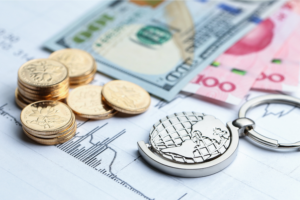ASX stocks will need to Climate report from 2025: Is this a big deal?

Like it or not, ASX stocks will need to Climate report from 2025. In other words, they will need to include climate-related information in their financial reports. In late March 2024, amendments to the Corporations Act were tabled in parliament, facilitating this.
‘A rigorous, internationally‑aligned and credible climate disclosure regime will support Australia’s reputation as an attractive destination for international capital and incentivise investment in the energy transformation,’ Treasurer Jim Chalmers declared. But what do investors need to look out for? And will it make that big a difference to companies and people who invest in them? Those questions will be answered in this article.
ASX stocks will need to Climate report from 2025, but how will it work?
From January 1 2025, ‘large companies’ will need to make climate disclosures. Large companies are defined as a company with at least two of the following three characteristics: at least $500m in consolidated revenue, at least $1bn in gross assets or at least 500 employees. This was actually meant to happen after July 1 2024, but got delayed until January 1 2025.
There are later stages from 2026-2028 when smaller companies (smaller as judged by being below the thresholds in the above metrics) will need to make certain disclosures, the specifics of which we’ll save for another article.
But larger companies will have more requirements imposed on them in 2026 to include ‘scope 3 emissions’. Those generated by their customers and suppliers as well as those emissions associated with a company’s financing and investing activities. The US SEC was going to force companies to do this, but backed down due to concerns over reliability of the data and compliance costs.
And here’s another spanner in the works. The Coalition’s shadow treasurer Angus Taylor has promised a Peter Dutton-led Coalition government would unwind the laws. Obviously, if they win the election and they can get a repeal through the senate.
Sustainability reports
Large companies will need to prepare a sustainability report in compliance with ASRS (Australian Sustainability Reporting Standards) standards. They are comprehensive, but in a nutshell companies will need to disclose:
- Governance processes used to monitor and manage climate-related risks
- The strategy for managing risks and opportunities for the company’s business model and finances
- The overall risk profile, including specific emissions and the percentage of assets vulnerable to climate-related risks and opportunities.
These will need to be lodged in conjunction with the company’s financial statements and annual reports – three months after the end of financial year for so-called ‘disclosing entities’ which should be most ASX stocks.
Will this be a big deal for the companies?
Maybe not for most large cap companies. The Australian Council of Superannuation Investors has found that 70% of the ASX 200 was already reporting voluntarily under an international framework, although there may need to be some changes to apply with the standards enshrined in law.
We noted above that the timing is from January 1 2025 instead of July 1 2024. The ASX submitted to a parliamentary inquiry that reporting starting on the previous date would impose ‘a significant burden on reporting companies’, given companies would need to work to meet reporting requirements. It will be interesting to see what requirements will apply to smaller companies and how long they’ll be given to catch up, although they will be given more time than larger companies to comply.
What about for investors?
Jim Chalmers declared that,’ Our changes will establish Australia’s climate risk disclosure framework, giving investors and companies the transparency, clarity and certainty they need to invest in new opportunities as part of the net zero transformation’.
‘A rigorous, internationally‑aligned and credible climate disclosure regime will support Australia’s reputation as an attractive destination for international capital and incentivise investment in the energy transformation’.
In our view, it won’t make too much of a difference. Anti-woke investors likely avoid ESG-friendly stocks anyway, and many companies reporting will retain their core operations. The Big banks will keep banking, the miners will produce commodities and the supermarket will sell groceries.
It will just mean a little more work for the company’s auditors, although much of the blood, sweat and tears put in remains hidden from most investors, unless something goes substantially wrong, such as if reporting is delayed.
What are the Best ASX Stocks to invest in right now?
Check our buy/sell tips

Blog Categories
Get Our Top 5 ASX Stocks for FY26
Recent Posts
Australian Dollar Hits Multi-Year High Against JPY: What’s Driving the Rally and Who Benefits?
Australian dollar jumps against the yen as rate gaps widen The Australian dollar has been on a tear against the…
Copper Surges Past $14,000 to Record Highs: What It Means for ASX Copper Stocks
Copper prices have surged past US$14,000 per tonne this week, reaching a historic peak of US$14,527 on Thursday before profit-taking…
Star Entertainment (ASX:SGR) Drops 16% Despite First EBITDA Profit in Quarters: Buy, Sell, or Wait?
Star Entertainment turns EBITDA positive but survival risks remain Star Entertainment (ASX: SGR) plunged 16 per cent to A$0.14 on…


